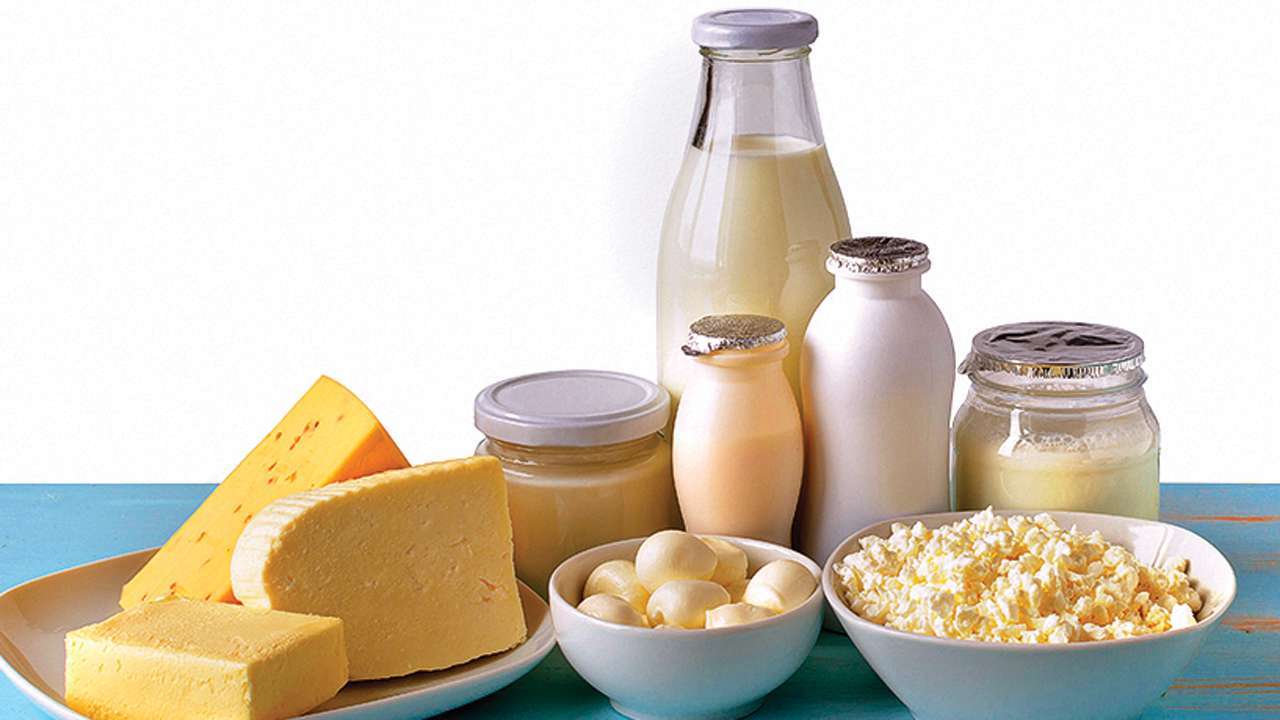- Get link
- X
- Other Apps
There are good reasons to avoid the cruelty inherent in the dairy industry. Milk opponents point out that humans are the only species that consumes milk and its derivatives into adulthood, and that most people worldwide are lactose intolerant. People are more likely to shun dairy in favour of non-dairy alternatives such as milk, yoghurt or almond milk.
However, remember that lactose-intolerant people can sometimes consume fermented dairy products such as almond milk, soy milk or almond butter. People who cannot digest dairy products may want to consume milk reduced in lactose saccharides or fortified soy alternatives. People who suffer from a milk allergy or lactose intolerance can eat eggs without experiencing the negative consequences of a milk allergy.
Dairy products are a good source of calcium, and this is one of the main reasons why the USDA and the National Institutes of Health (NIH) recommends consuming dairy products. Dairy products do not necessarily contain as much calcium as milk products, but are often fortified with calcium and vitamin D. This is because calcium helps maintain bone density and reduces the risk of fractures.
Although dairy products may contain more calcium than many other foods, the evidence seems conflicting, but some evidence suggests that eating dairy products can prevent bone fractures. Although dairy products, especially milk, are promoted as a weight loss tool, research does not support this, even if calories are limited, "Malik says.
Milk and other dairy products have come under criticism in recent years for their lactose content, as they contain milk - such as ingredients such as whey and dairy products. There are products in milk cheese boxes in grocery stores that look like and are labeled as milk and cheese, but are not milk or cheese. If they do indeed contain wheat, a milk ingredient, the milk still contains milk, dairy products, cheese and milk powder, and milk milk.
To the best of our knowledge, no product contains or may contain milk, known or hidden milk products. This means that dairy products can be identified even without ingredients and without ingredients - milk is used. Even if a product is labelled "dairy-free," it contains animal milk or milk - from these ingredients.
However, a "dairy-free diet" for labelling only refers to cow's milk and people consume other animal milk (goats), for example. The term "dairy product" is often used in sentences referring to dairy products, such as dairy milk or dairy products with lactose in them. Lactose is found in dairy products from cows, goats, sheep, pigs, chickens and other animals, as well as in milk from cows.
Ethically, the main difference between beef and dairy products is that beef comes from slaughtered cattle, while dairy products come from cows that are slaughtered. Unlike the cryptography and slaughter of young calves, we all know that dairy products are what makes the veal industry possible.
Milk can contribute to a healthy diet, but you have to pay attention to the type and quantity of milk you consume. If for any reason you decide to remove dairy products from your diet, you need to know which products contain dairy products.
All cheeses must be made from pasteurised milk and some cheeses are made from both pasteurised and unpasteurised milk. Fermented milk products, which include milk from cows, goats, sheep, pigs, chickens, cows or goats, are generally not a problem.
To produce lactose-free milk, manufacturers add a small amount of lactase that breaks down lactose, resulting in milk that can be digested without discomfort by people with lactose intolerance. Since the milk is broken down by heating, slightly evaporated milk may be preferred to unheated food.
Condensed milk products are stored at a temperature of 45 degrees Celsius or less and stored there for further processing. The condensed milk should be dried immediately and cooled on approved equipment and stored in a cool, dry place.
The FDA is aware of non-quality products that are shipped in interstate commerce, including, but not limited to, dried milk, dairy products, milk-related fillings and dairy products. Products that include dried, frozen or frozen desserts - from ice cream to biscuits, ice cream, pastries, cakes, cakes, muffins and other desserts - require a license for dairy equipment. Licensed dairy installations require a license for each product that includes dried and frozen milk and / or milk-related fillings, as well as any other milk.
Part 58 of Title 7 provides a list of establishments producing USDA-rated dairy products and quality standards for evaporated and dried milk products. Part 131, Title 21, contains 20 standardised milk and cream products, including dried, frozen and frozen milk, milk-like fillings, dried milk products and dairy products. The six dairy products that were rated included strawberry-flavoured Swiss yoghurt, tartar cream, yoghurt with cream cheese, dairy products - free ice cream, cheese and milk
- Get link
- X
- Other Apps

Comments
Post a Comment